From tuning by ear to using an electronic tuner. The lesson goes over the various tuning methods for tuning your ukulele. You ALWAYS need to play in tune.
From tuning by ear to using an electronic tuner. The lesson goes over the various tuning methods for tuning your ukulele. You ALWAYS need to play in tune.

This Video is NOT part of your LearningUkulele.com Site Access level. Sign-up for Premium Site Access or Upgrade your current access level to view this video. Sorry can't continue to justify giving so much away for FREE. For FREE videos hit up YouTube.
- A dedicated page on Tuning Your Ukulele
- A dedicated page on Common and Not So Common Ukulele Tunings

 This is tuning by using a reference note and comparing each string to this note. A tuning fork , piano or other instrument can be used as the reference note.
This is tuning by using a reference note and comparing each string to this note. A tuning fork , piano or other instrument can be used as the reference note.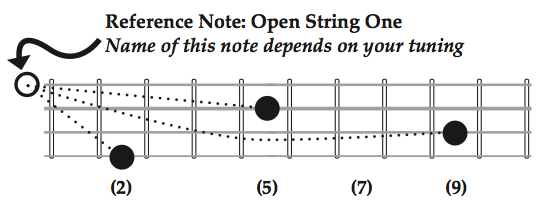
Equal Temperamentabove).
G- C Tuning (gCEA) and High
A- D Tuning (aDF#B)
- Compare string ② to string ①, a perfect fourth
- Compare string ③ to string ②, a major third
- Compare string ④ to string ①, major second
G– C Tuning (GCEA), Low
A– D Tuning (ADF#B), and G tuning (DGBE)
- Compare string ② to string ①, a perfect fourth
- Compare string ③ to string ②, a major third
- Compare string ④ to string ③, perfect fourth
Gtuning is the same relative intervals as the thin four strings of the guitar.

Sliced Bread.
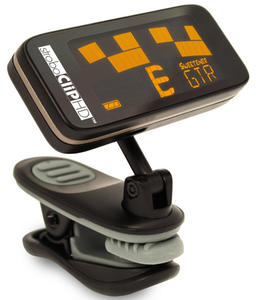
G, C Tuning
- The A string (4th/ closest to your toes) = 440 Hz
- The E string (3rd string) = 329.63
- The C string (2nd string) = 261.63 Hz
- The G string (1st/top string) = 392 Hz
Related Lessons, Videos, Lesson Series, Songs, Books & Reference Charts, Resources & Assets, Workshops are below.
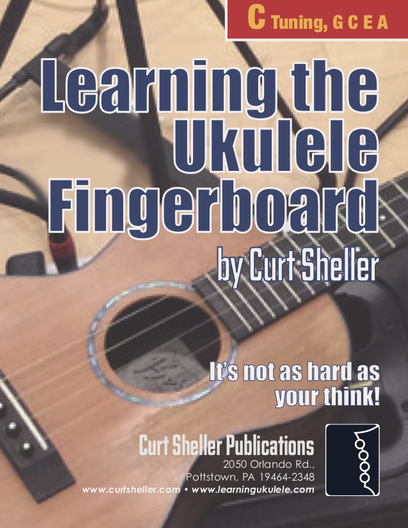
Finally, learn the names of the notes of the fingerboard. Learning the notes of your instrument allows you the flexibility of not having to remember so many shapes. There are simply way too many chords, scale and notes patterns, and shapes to remember. It all comes down the notes.
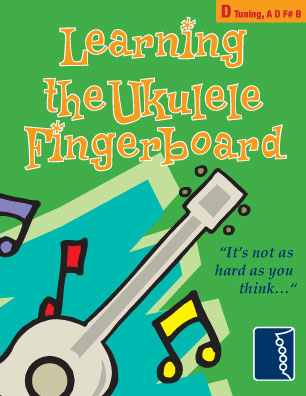
If your goal is to finally learn the names of the notes on the ukulele fingerboard. Then Learning the Ukulele Fingerboard - D Tuning is your answer. Learning the Ukulele Fingerboard - D Tuning, has a step by step approach to finally mastering the ukulele fingerboard.
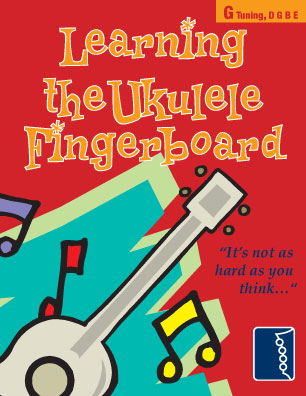
If your goal is to finally learn the names of the notes on the ukulele fingerboard. Then Learning the Ukulele Fingerboard - G Tuning is your answer. Learning the Ukulele Fingerboard - G Tuning, has a step by step approach to finally mastering the ukulele fingerboard.

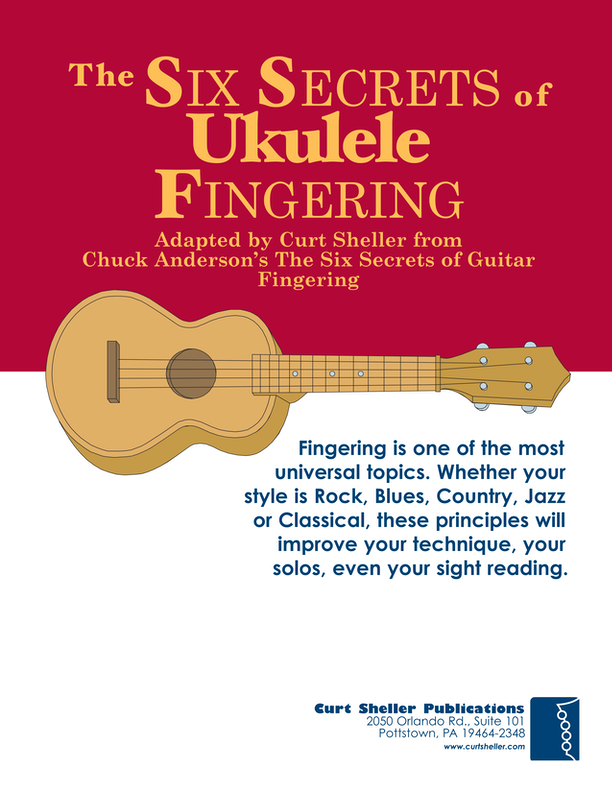
return in your investment)—it is this— learning the
f*ckingnotes of your OWN instrument. Sorry for the tough talks—but it is sooooo true!
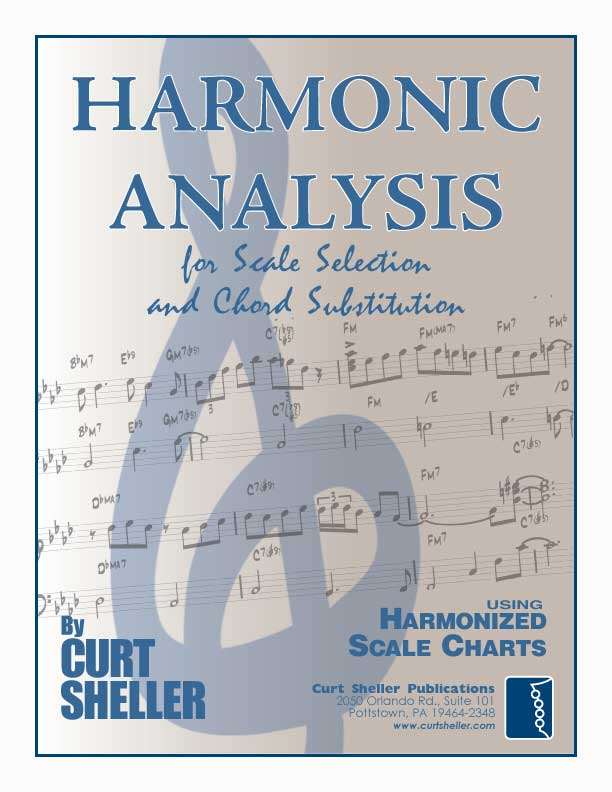
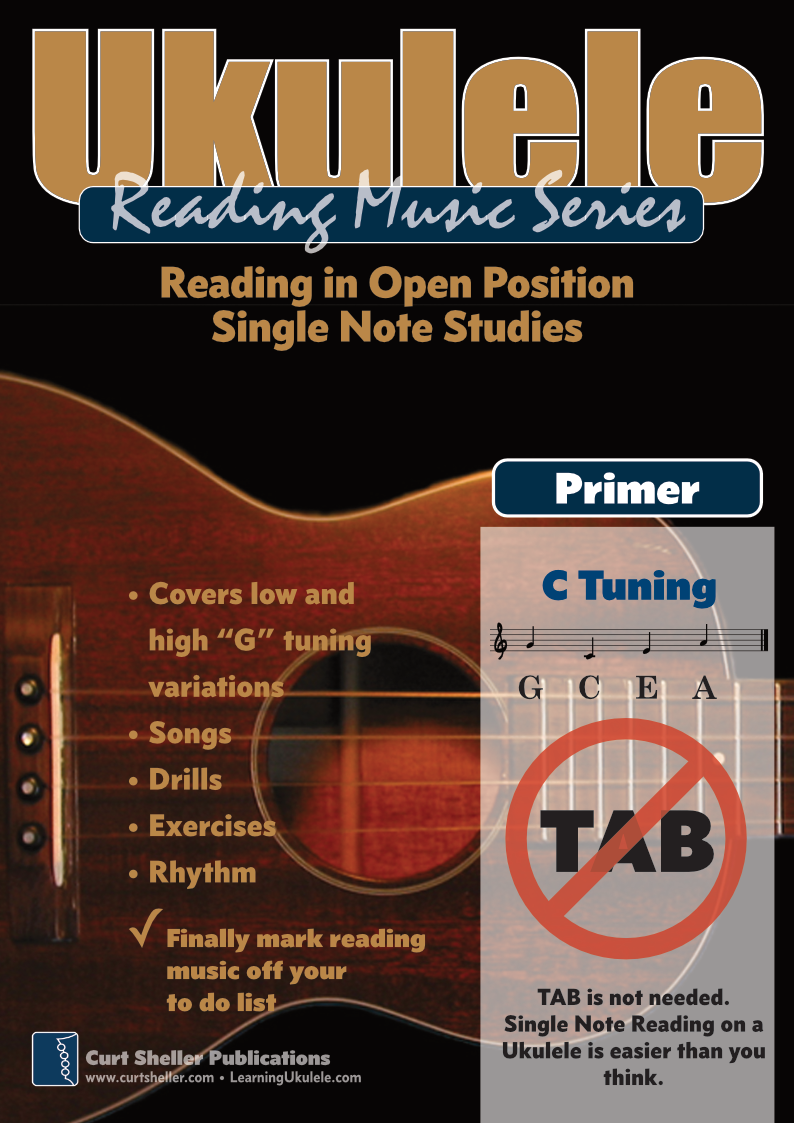
Learn to read single note melodies in the first/open position is a lot easier than you might think. Book: Ukulele – Reading Music Series – Primer
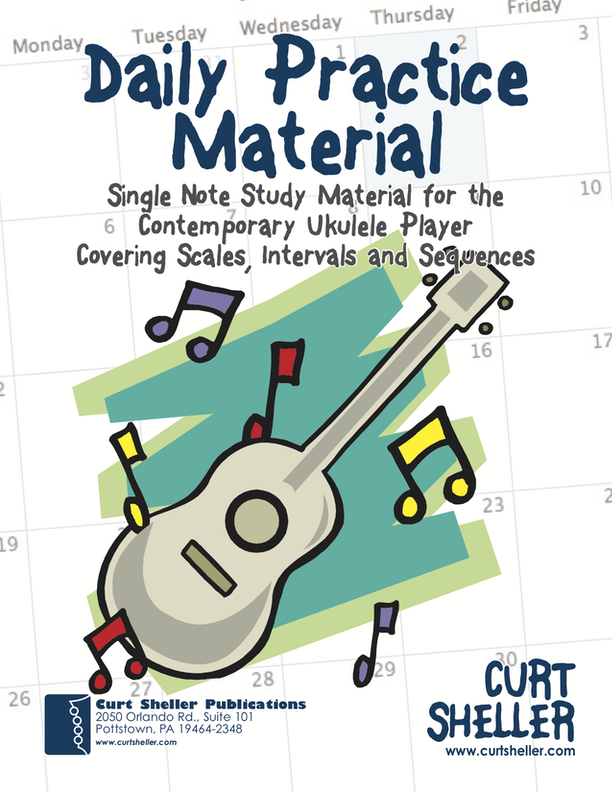
An organized collection of daily practice and reference material for the contemporary ukulele player for developing the vocabulary and knowledge necessary for single note playing. Book: Daily Practice Material for the Contemporary Ukulele
Checkout the Books & Reference Charts for additional Handy, Dandy Reference Charts.
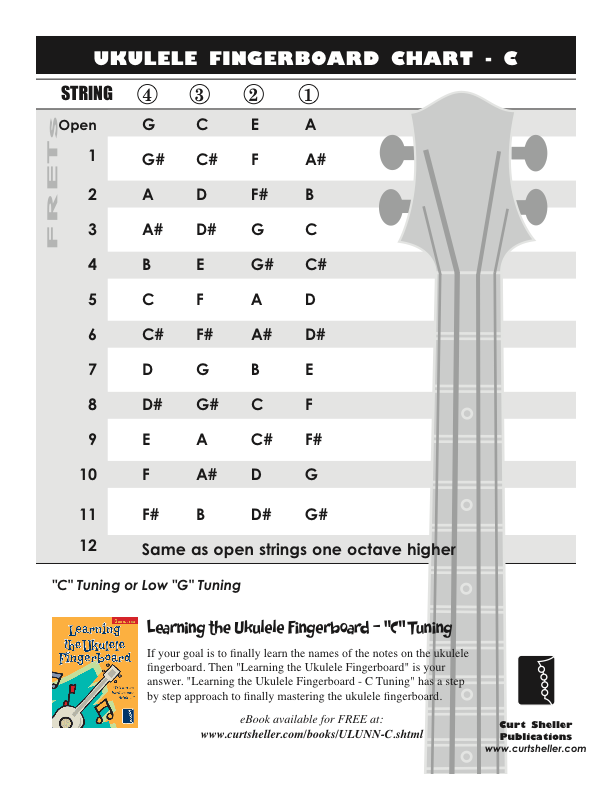
Ukulele Fingerboard Chart for C Tuning, Low or High G – G C E A
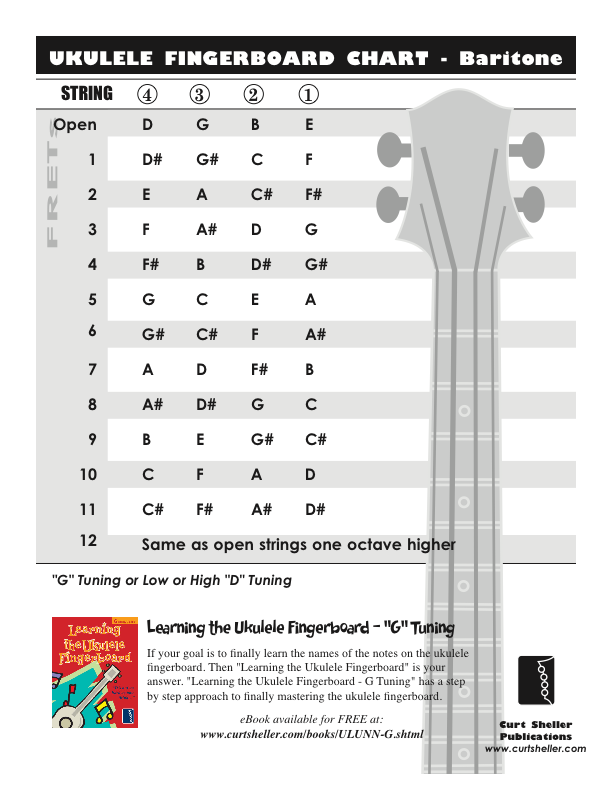
Ukulele Fingerboard Chart for G Tuning, Low or High A – D G B E
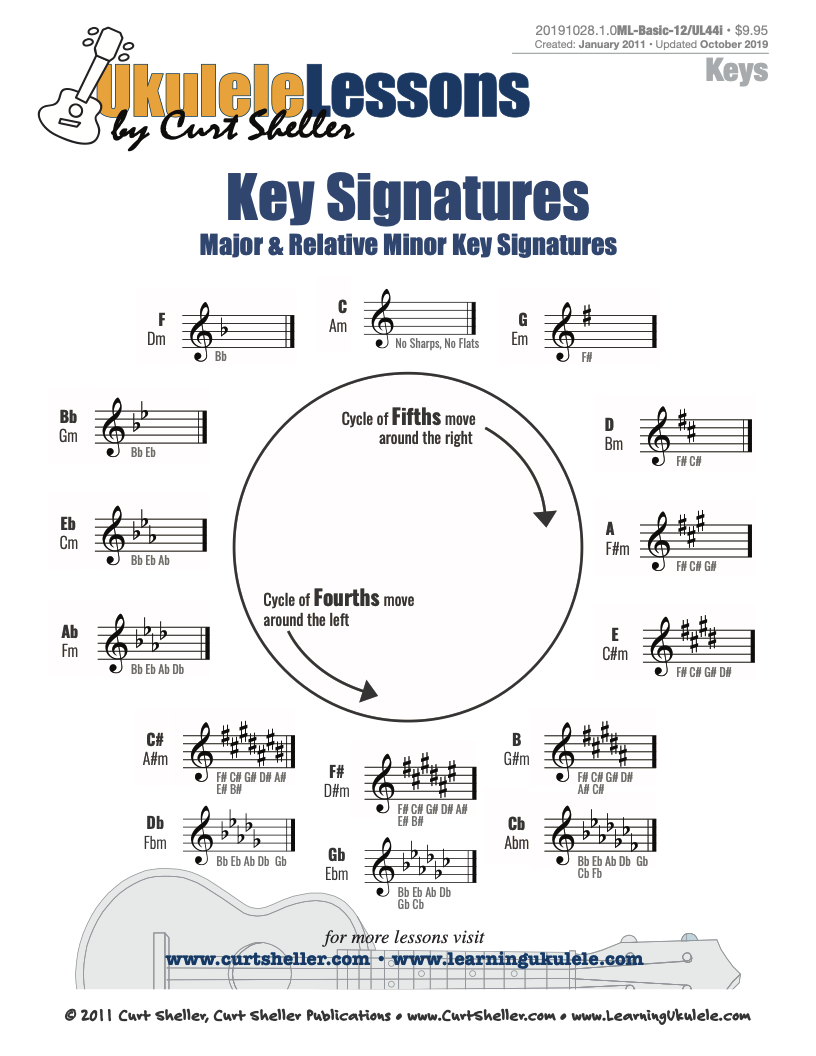
A handy reference chart of all 15 major and relative minor key signatures. US Letter 8.5 x 11 sized (ANSI-A) , A4

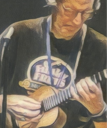
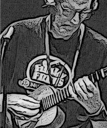
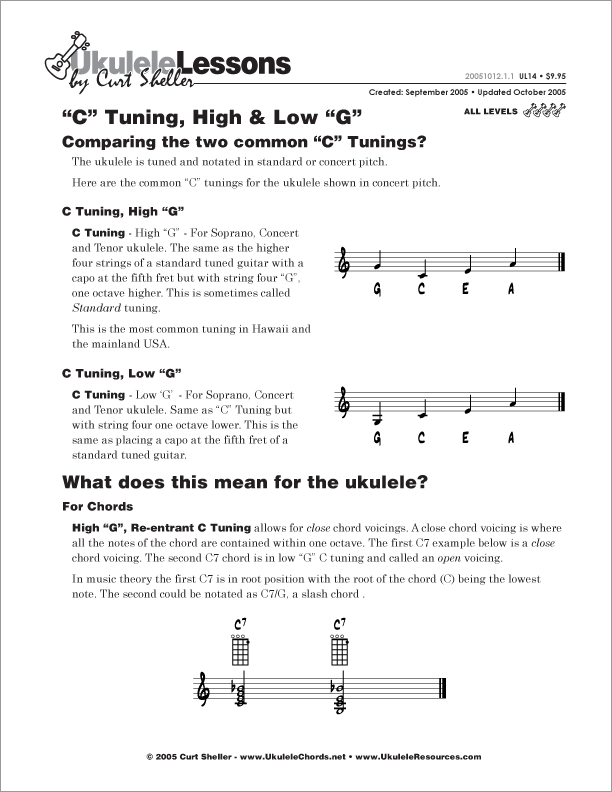


.jpg)